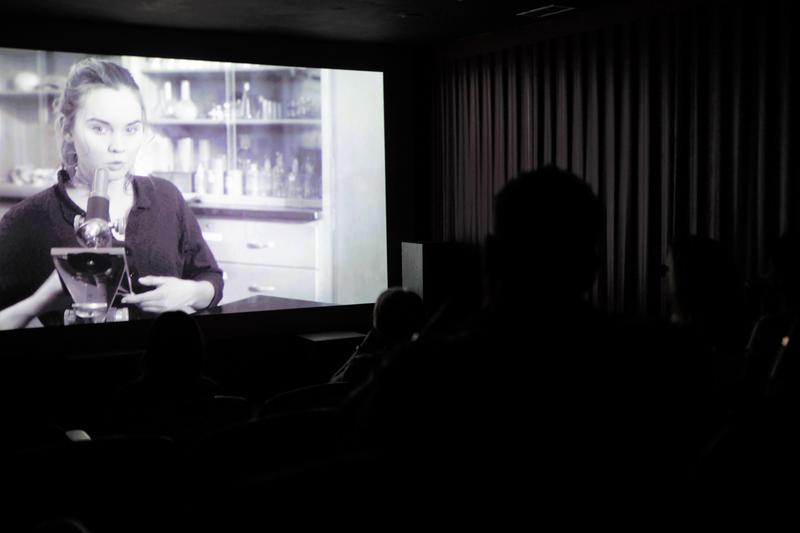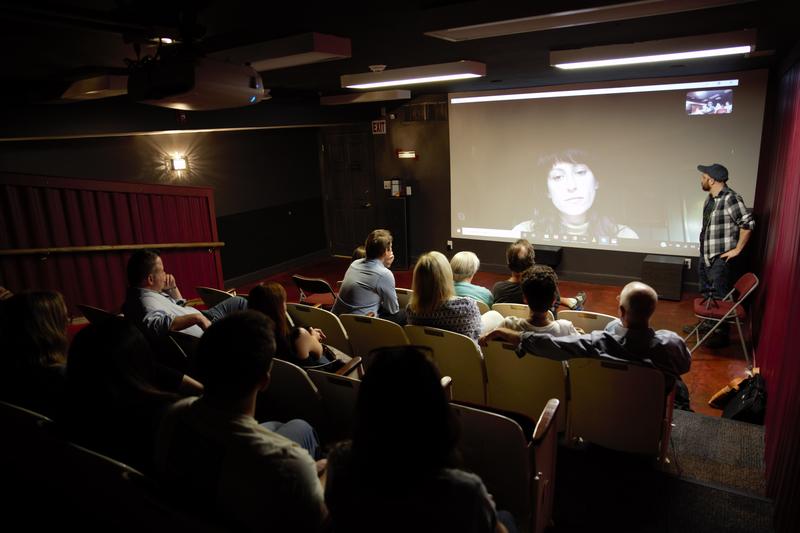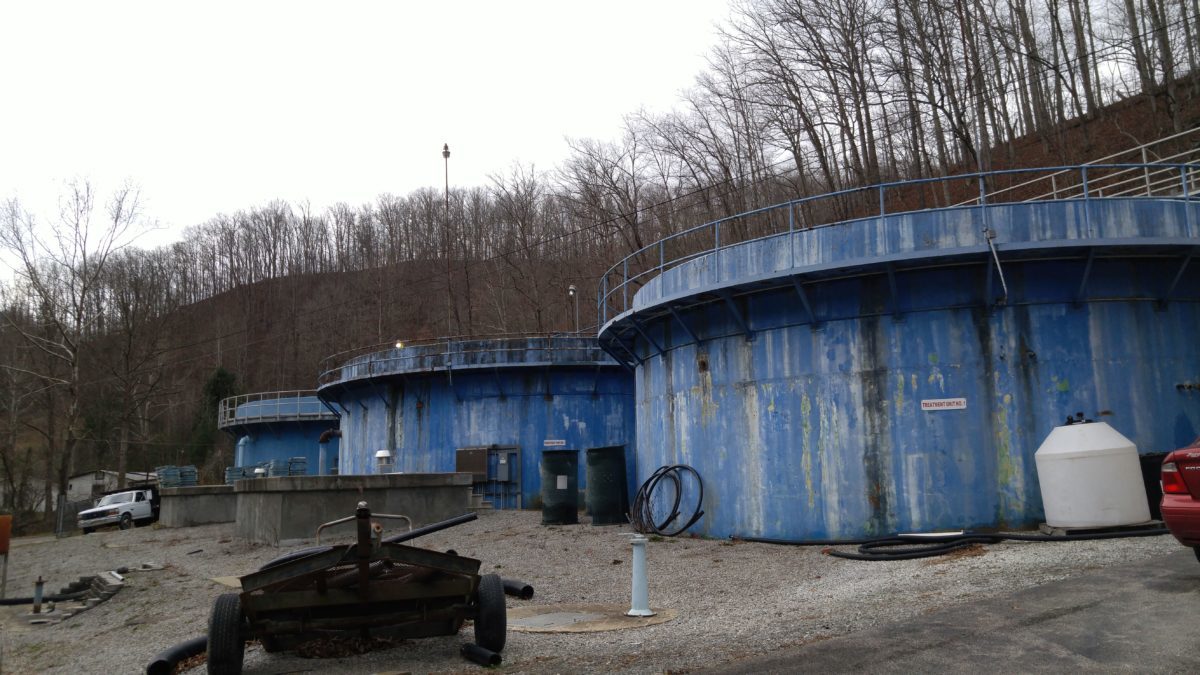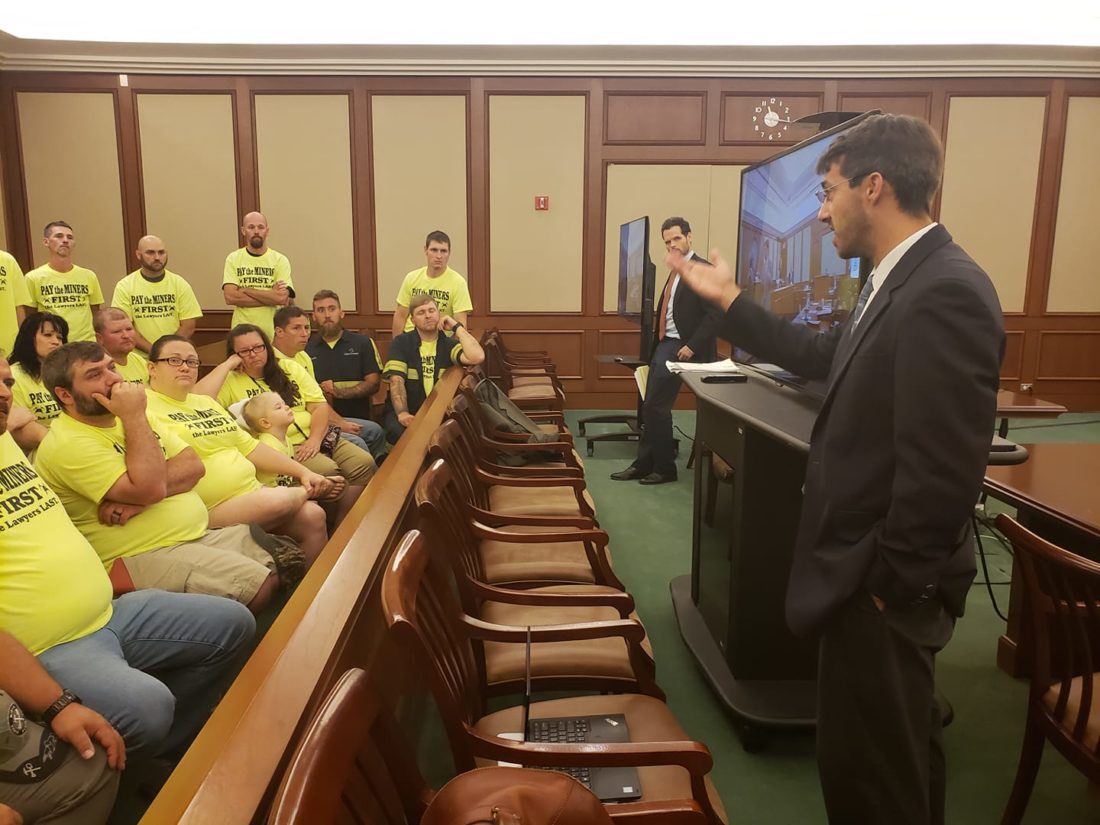When civil rights attorney-turned-filmmaker Jon Matthews agreed to start a film festival with his friend Tim Ward, Matthews said the title alone was the selling point.
“He’s like, ‘It’s Appalachian Queer Film Festival,’” Matthews said. “I’m, like, ‘Done. You’ve got me. Sold.’ … I never heard anything like those two words in the same sentence before, ‘Appalachian and queer.’”
He recalled the festival’s origin story from the Floralee Hark Cohen Theater, an intimate room underneath the Taylor Books coffee shop in downtown Charleston, where the 2019 Appalachian Queer Film Festival (AGFF) took place last weekend.
Matthews and Ward, who live in Los Angeles and New York respectively, are both West Virginia natives. Several of the films they chose to show this year involved directors from and stories set in Appalachia, or rural America.
“We want to bring good film here, but we also like to bring people from out of state here to show them like, ‘Hey, we don’t meet all the stereotypes that you might have in your head,’” Matthews said. “We’re much more open-minded … And we love good cinema.”
The first AQFF took place in 2015, at the Lewis Theater in Lewisburg, Greenbrier County. The two curators had secured a grant from the Greenbrier County Community Foundation, which had received $6,700 to help with the festival, from the West Virginia Humanities Council.
The AQFF received honorable mentions from national news outlets, including Vice and the Huffington Post.

In 2016, Matthews and Ward’s work was acknowledged by a different type of publication — a study on wasteful spending in West Virginia by the Cardinal Institute, a conservative lobbying group funded by the Koch Brothers.
The report, “Wild and Wasteful West Virginia,” said the festival was using state dollars to show films that “many taxpayers would find objectionable.”
Among its list of wasteful spending in festivals, the study also called attention to grants supporting the West Virginia Strawberry Festival, the State Fair of West Virginia and the Mountain State Forest Festival.
The West Virginia Humanities Council decided against rewarding the AQFF a second grant in 2016. According to Erin Riebe, grants administrator for the West Virginia Humanities Council, the decision had nothing to do with the study.
Rather, Riebe said, the AQFF’s second application didn’t meet the council’s requirements for humanities content.
“A small festival like that, you know, it kind of really hurts,” Matthews said. “So, we took a hiatus because of that grant being taken away, and really regrouped after that. We’ve taken this time to kind of find our legs again.”

Today, the AQFF receives support from local nonprofits, businesses and the West Virginia International Film Festival. Regardless of this year’s turnout and cost, Matthews said he’s looking forward to having an Appalachian Queer Film Festival next year, and for years to come.
“We’re going to do it no matter what,” Matthews said. “Even if just two people show up, we’re still going to do it, because we feel like this is important. So many people come up to us, and say the fact that this thing exists is important to them. They’re like, ‘I had trouble even saying who I was, and now there’s a film festival that represents that, and it kind of carries that banner for me.’”
Emily Allen is a Report for America corps member.
This article was originally published by West Virginia Public Broadcasting.



